Coffee with Francesco Tullio-Altan
At his house in Aquileia
Conversation with Fabiana Fierotti Photography Leonardo Scotti
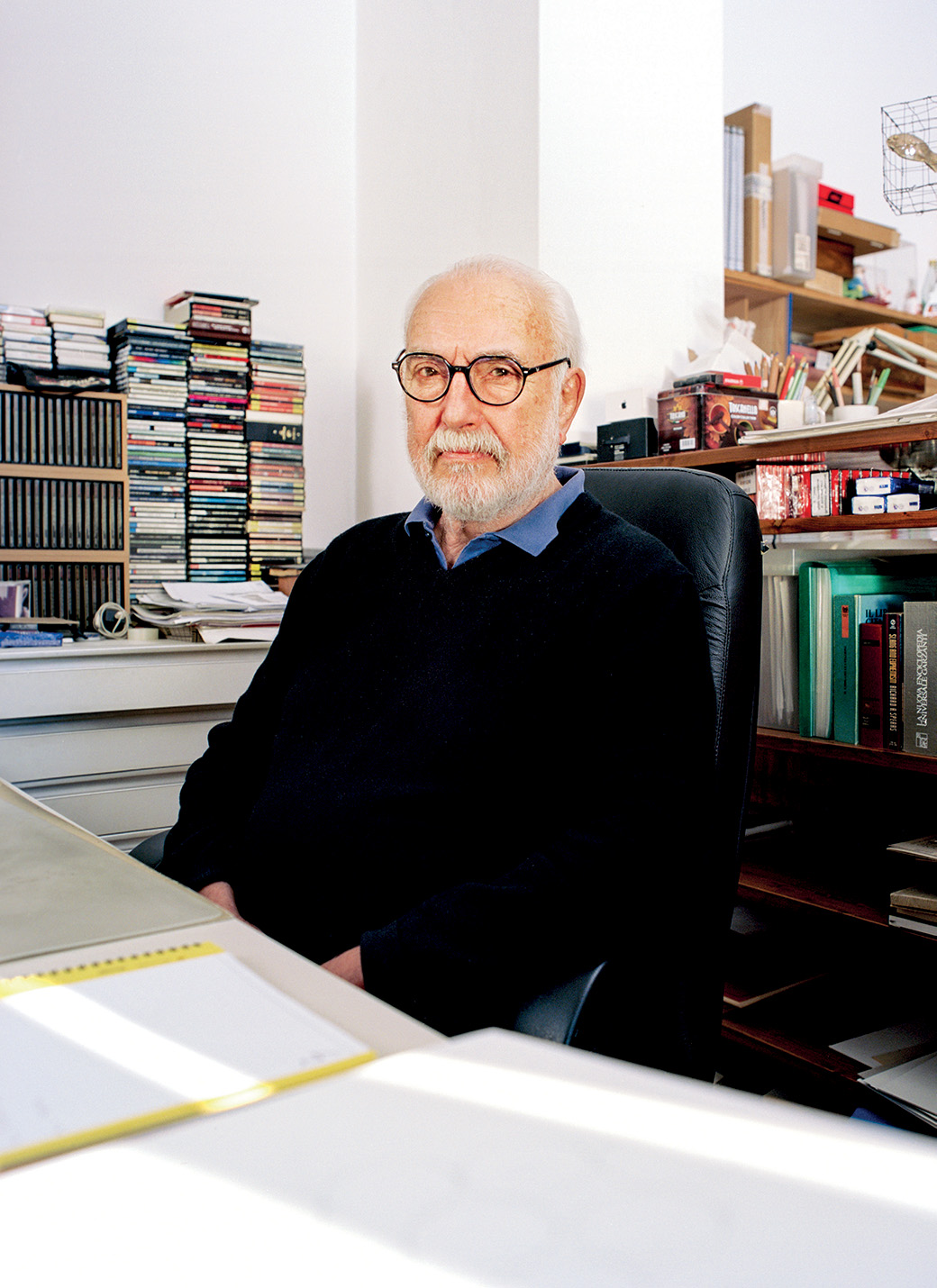
-
When I think of Altan, I am immediately catapulted back to my childhood as probably any Italian born from the late ‘70s onwards would be. Pimpa, the little, red-spotted dog with big eyes, long ears and that sticking-out red tongue, continues to inspire generations of young and old alike with her pure and surprising imagination, which contains not a hint of darkness. I think of my adult life too, which has been accompanied by those razor-sharp comic strips with unforgettable characters such as factory worker Cipputi with his wise and disenchanted vision of the world. And as it happens, all these perfectly realistic characters came into life thanks to Altan’s own observation of the world, because he has always been shy, ever since he was a child, and drawing was his window onto a world of bright colours and long, curly noses, created in the intimacy of nights spent drawing and smoking cigars. And that’s precisely how he welcomes us to his farmhouse in Aquileia, in the Friuli region: almost 80 years old, casually dressed, with a cigar in his mouth and a pair of dark bone glasses that frame his face and his lively, attentive, smiling eyes. I have watched and read countless interviews to prepare for this moment and one thing was clear from all of them: Altan isn’t just shy, he also maintains a level of reserve with people he doesn’t know that perfectly represents his way of life, removed from everyone yet still in touch with what’s happening in the world. Penetrating this barrier is no easy task and, to my eyes, this makes him even more fascinating. We enter the house and his wife, Mara, greets us warmly and sits us down in the kitchen for a coffee. Friendly Mara, clearly a strong and eclectic woman with a subtle sense of humour, is immediately recognisable as the “rock” of the family. We sit around an enormous wooden table and start to chat.
-
FFHow long have you lived here?
-
FTASince 1976. This was my grandfather’s house.
-
FFI read that your father lived here too.
-
FTAYes, at the end of his life. He was a university professor so he lived in lots of different cities before moving here. The last one was Florence, then he moved from Florence to Trieste so he came to live in part of the house.
-
FFYou have travelled extensively as well, both in Italy and abroad.
-
FTAYes, Rio de Janeiro in Brazil.
-
FFIs that where you met Mara?
-
FTAExactly. But first came Venice, which played a fundamental role in my life in Brazil. I studied Architecture there and I met a guy called Gianni Barcelloni who became my friend. Gianni wanted to work in cinema and he moved to Rome at a certain point. He founded a small production company and his first job was on Brazilian pop music for RAI (Italian national broadcaster, Ed.). I was still in Venice when he called and asked if I wanted to join the troupe. I said yes, of course. We spent almost a year in Brazil and then I moved to Rome.
-
MCAre you sure it was just a year in Brazil?
-
FTAThe first time...
-
MCAh, I see, I misunderstood.
-
FTAAfter two years, I returned to Brazil, I met Mara and I stayed.
-
FFHow long did you stay in Rio?
-
FTAFive and a half/six years in total.
-
(Mara brings us coffee)
-
FFAnd how did you two meet?
-
FTAI was in Brazil for a film that time, again for my friend. We needed a costume designer and the production manager found Mara for the role and introduced us.
-
FFAnd that was the beginning of a great love story.
-
FTAWell, certainly a long story (laughs).
-
FFThere must be love if you’re still going strong. How long have you been together?
-
MC50 years.
-
FTAMore than 50. 52.
-
FFWhat was it like moving to Italy from Brazil?
-
FTAWe were planning on being here for a year (laughs), it wasn’t meant to be permanent.
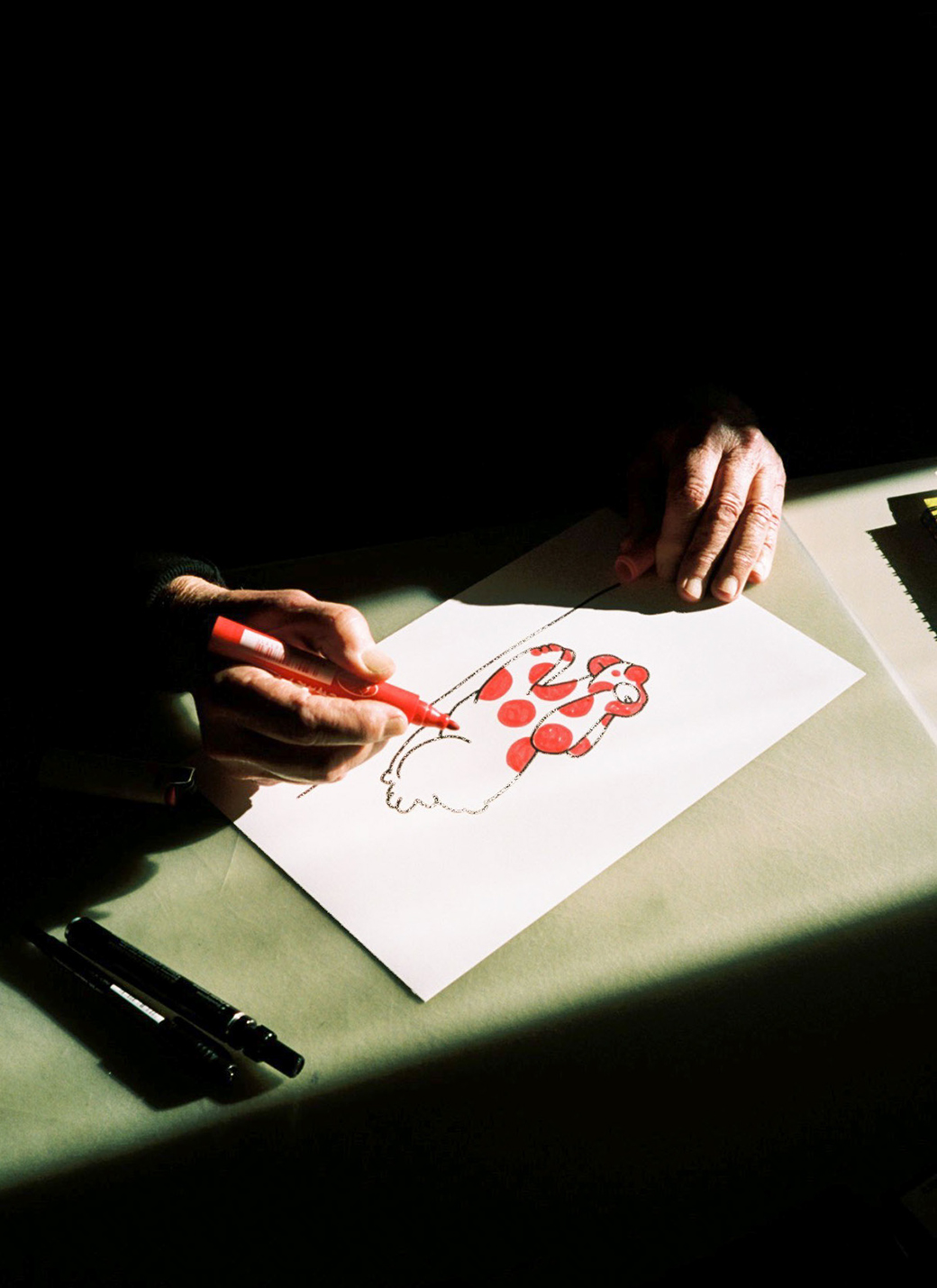
-
FFI imagine it must have been quite a change.
-
MCHe employed me for a year and it became a permanent contract (laughs).
-
FFWhen did you start drawing, Francesco?
-
FTAI’ve been drawing since I was a child.
-
FFWhat is your first memory linked to drawing?
-
FTAI remember that I was always really happy when I got sick because I could stay in bed and they would bring me a tray with paper and colours. I always loved spending hours and hours drawing there. And then one thing gradually lead to another... There was never any plan. Everything sort of happened by chance.
-
FFWhenever I read your comic strips, I always wonder how they came about. Where does a strip come from? What leads to that moment where you manage to put both drawing and thinking down on paper?
-
FTAI don’t know, it’s difficult. But I know that I have to do it. Sometimes I start by sniffing the air and thinking about the things that are problematic for me or that get a reaction from me and it starts from there. At other times, I just feel I need to say something and there it is. And, you know, with 50 years of experience, you learn how to have ideas.
-
FFI suppose even creative jobs have their contingency plans.
-
FTAEspecially as I have deadlines. I have to get it done.
-
FFOf course. That’s where I struggle: you start from what’s happening in everyday life or a pressing thought, but getting it down on paper from there...
-
FTAThat only appears difficult. It comes naturally after a while.
-
FFWhat does your standard day look like? What time do you get up in the morning? What do you do?
-
FTAI used to wake up at 1 pm because I worked at night, but now I work during the day so I wake up fairly early.
-
MCYou worked at night back in ’75.
-
FTAAnd later.
-
MCUntil ’77 at the most.
-
FTAI still worked in the evenings after then.
-
FFLots of people create at night.
-
FTAYou get into a rhythm.
-
MCAdmittedly all your best creations were made at night. Except Pimpa, who I think was born in the daytime. Everything else belongs to the night.
-
FFBecause there is this duality that emerges. On the one hand, there’s this very cutting satire and on the other, Pimpa’s dreamlike world. What still surprises me when I read the stories to my children is that there aren’t any fixed narrative patterns. She is incredibly pure and spontaneous. Just like her stories.
-
FTAI think that’s because all my other work dates further back. Then when I found out I was having a daughter—I had always known in my heart that it would be a girl—I started creating things for her before she was born. It was my way of preparing for her arrival, creating a game that we could play together. They were two different roads that then ran parallel.
-
MCOne of the best things happened at the very beginning. I was giving birth in hospital, one designed by Oscar Niemeyer as it happens. I had ended up there by chance, after my waters broke in the street. So I told Francesco and he started making these papier-mâché puppets, these little animals that he would bake in the oven and then colour in. And when Chicca grew a little older and started teething, she ate them all (laughs).
-
FTAThey were made with flour glue so they were essentially little pieces of bread (laughs).
-
FFWhat a great snack!
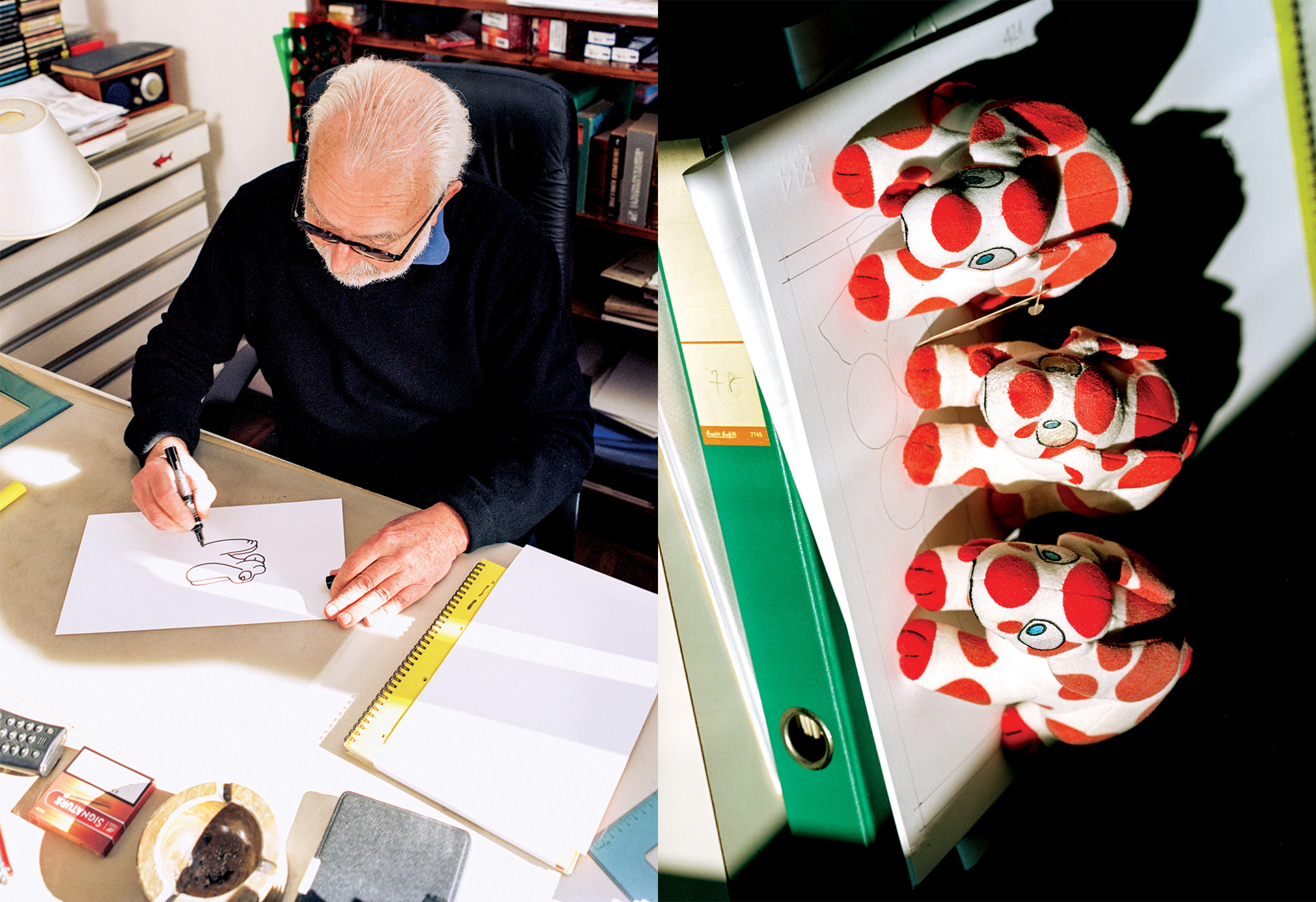
-
MCChicca’s first toys were Francesco’s puppets and not a single one has survived. I don’t think there are even any drawings.
-
FFSo is Pimpa’s approach to life inspired by Chicca?
-
FTANo, it’s just her personality. Armando has something of his father but there aren’t any other connections.
-
FFI am very fond of Pimpa’s rituals, such as her evening milk when she shares her adventures with Armando. It immediately conveys the idea of a warm and familiar universe but does so in a way that is absolute fantasy. There is a sort of “free thinking” that characterises both fantasy and satire. Are the two linked?
-
FTAI often say that there is the world that I would like to exist and the world that actually exists. Every so often, I run away there and I’m at peace because I know how it works, everything is logical, there are no unpleasant surprises, there is no violence. And I think it works like that for children, especially small children, who haven’t changed much over all these years. Children now are very different to how they used to be once they get past the age of six.
-
FFDo you remember what it was like being a child?
-
FTAI remember quite a bit. I was very shy and that was a dangerous trait in the world back then. Drawing was my hiding place, my safe space from which to observe the world.
-
FFPerhaps that is why Pimpa’s world tends to be so reassuring?
-
FTAThat’s her world and it doesn’t change. She still uses one of those old telephones with the dial and although she has a computer friend, I have never put a smartphone in her hand.
-
MCPerhaps it’s time you did.
-
FATNo, no. I don’t like the idea.
-
FFI agree (we laugh). How many languages has Pimpa been translated into?
-
FTANot many. Both the books and cartoons were released in France. It wasn’t a big hit in the States. And they made us change the name to Timpa because Pimpa sounded too much like the word “pimp”. The cartoon has been released in some countries and has been a big success, Germany for example, but we’ve never found an editor who would publish the books.
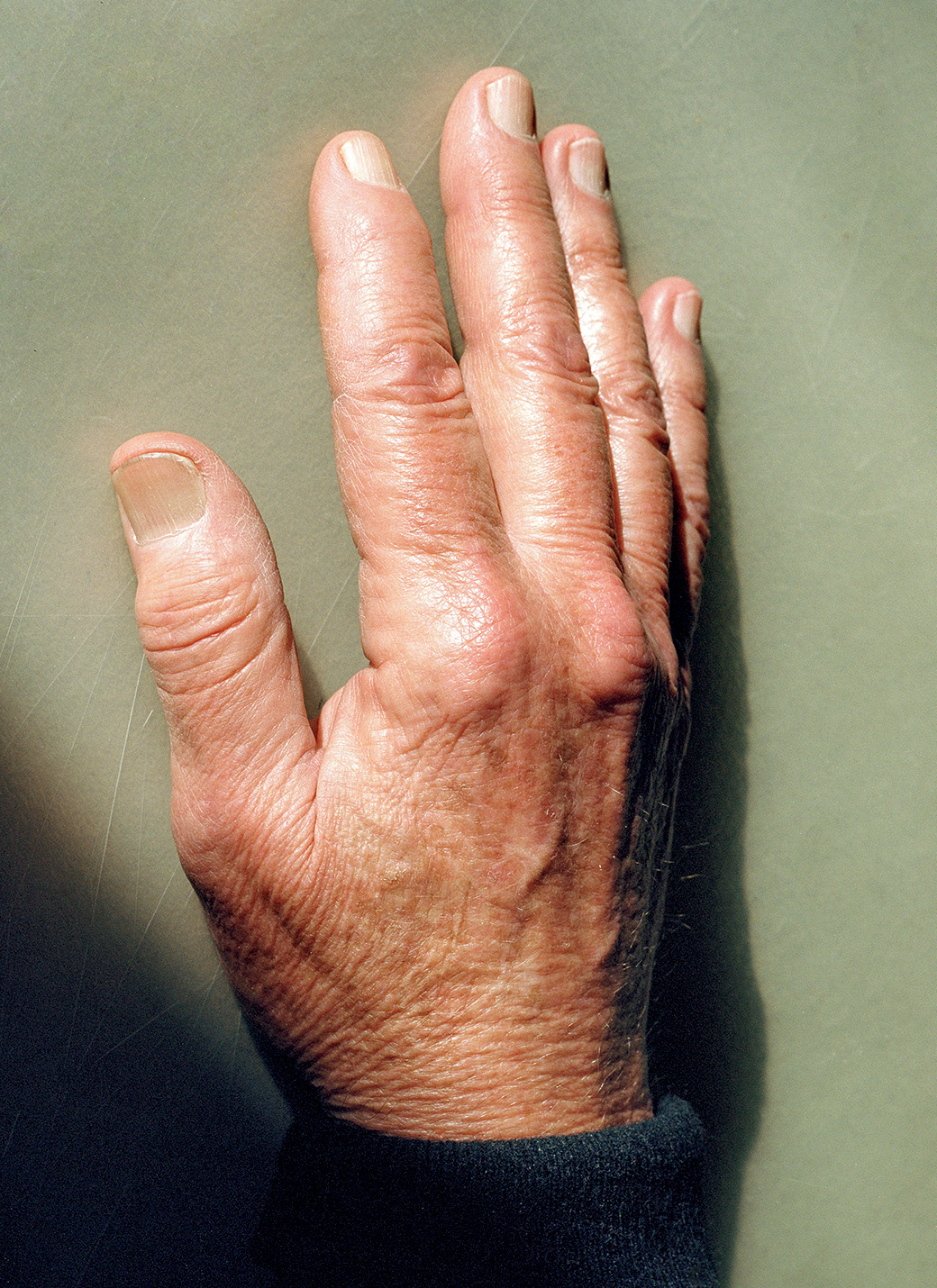
-
FFAnd what about Cipputi?
-
FTACipputi is exactly the same age as Pimpa. He was born at the same time in ’75. It was the year and a half we lived in Milan.
-
FFSo that’s where he came from! The disenchanting grey of industrial Milan.
-
FTAI think he was probably based on someone I saw around.
-
FFDefinitely possible.
-
FTAEspecially because on two or three occasions, people have come up to me saying: “That’s me, I’m Cipputi!”
-
FFWho would Cipputi be today?
-
FTAThere aren’t many of them left. I liked something that Vittorio Foa, the trade unionist, wrote. When I wrote the book to celebrate the character’s 10-year anniversary, he wrote that in his opinion, Cipputi wasn’t the emblem of the working class. He was the prototype of a good worker. Someone who knows what to do and does it well. I really liked this interpration because, in that sense, there are still lots of people like him. Luckily!
-
FFIf Cipputi could vote nowadays, who would he vote for?
-
FTACipputi would vote for the PD (Democratic Party).
-
FFI thought as much. Going back to Milan, what made you leave?
-
FTAIt was ’76 and all the political turbulence of those terrible years was well underway. We lived in Baggio, which wasn’t exactly the best neighbourhood at the time, so we decided to move here to the family home. I worked until four or five in the morning so it made no difference whether I was in Milan or anywhere else.
-
FFDo you always work from home? Have you never had a studio?
-
FTANo, I’ve always worked from home.
-
FFSurrounded by your women (they laugh).
-
FTAShall we go upstairs a moment so I can show you where I draw?
-
FFYes, let’s go.
-
(We go upstairs)
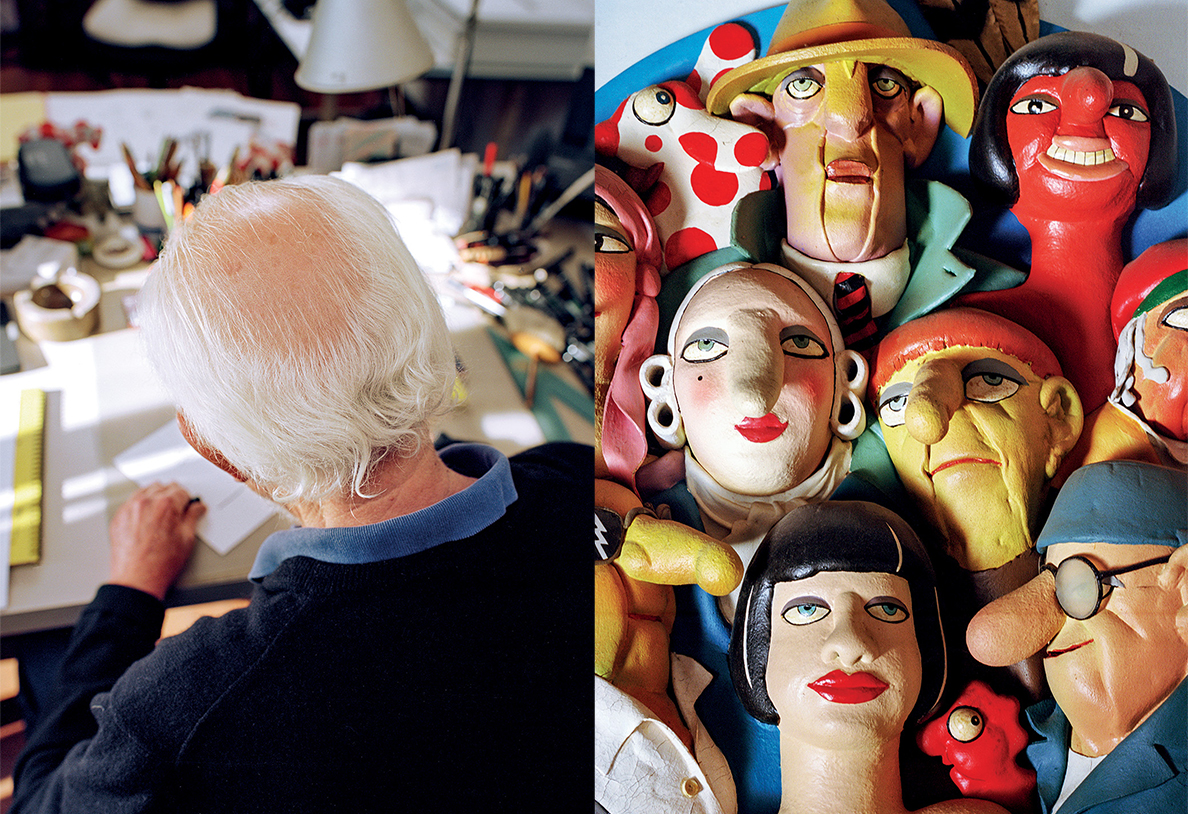
-
FFWhat relationship do you have with the digital world?
-
FTANone. I feel like it’s a time-waster...
-
FFBut you do have WhatsApp and you’re relatively quick to reply.
-
FTAWhatsApp seems very convenient to me but not the rest. Mara has Facebook and she spends hours and hours on it.
-
FFIt’s a pastime in itself to be honest.
-
FTAYes. I don’t know what she would have done without it during lockdown. I turned to TV series instead.
-
FFWhat’s your favourite?
-
FTAMad Men.
-
FFI couldn’t agree more. There are a lot of CDs up here. Do you listen to music while you draw?
-
FTAI used to listen to a lot, less now...
-
FFWhat type of music?
-
FTAAlmost exclusively jazz. It’s the best for working.
-
FFI see some Bossa Nova here! What remains of your time in Brazil?
-
FTAEverything, in the sense that it all continues. We visit often, we have a house there. Mara has a very big family, so they come and visit every so often. We’ve kept the relationship alive.
-
FFWell, it’s an important place, it’s where you met.
-
FTAYes, and above all, Brazil for me represented an unexpected change of direction, it opened brand new horizons for me. It gave me the freedom to change my life in unexpected ways.
-
FFIn that case, let me ask what freedom means to you and how you have interpreted it in all these years of work?
-
FTAFreedom is something that we believe is absolutely fundamental and yet which I think is actually quite rare. So we do everything for freedom and also the opposite of everything.